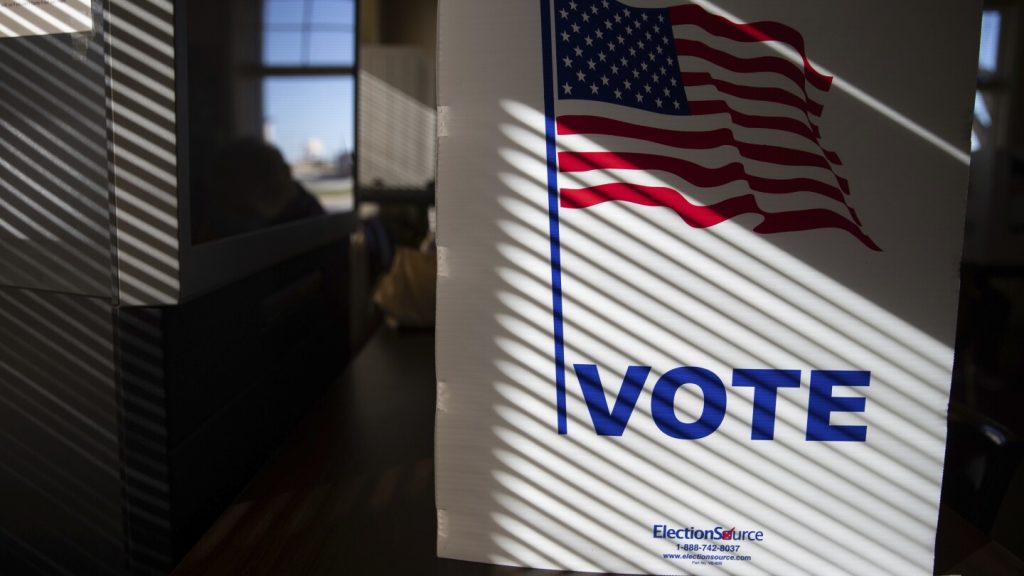Nebraskans are gearing up to cast their ballots in the presidential primary on Tuesday, in a state that typically leans Republican but could play a crucial role in the race for the White House. President Joe Biden and former President Donald Trump are expected to secure their parties’ nominations, but protest votes against both candidates continue to emerge. Former United Nations Ambassador Nikki Haley remains a popular choice on the Republican side, despite withdrawing from the race earlier this year, raising concerns about voter dissatisfaction.
In the Democratic primary, organized campaigns to vote “uncommitted” as a protest against the war in Gaza have been seen in several states, but in Nebraska, the options for protest votes are limited to voting for Rep. Dean Phillips or writing in a candidate. The state only counts write-in ballots for candidates who have filed an affidavit and paid a fee, none of which have done so. Nebraska allocates its electoral college votes based on individual congressional districts, with Biden winning one of the five electoral votes in 2020 in the state’s 2nd Congressional District.
Republican U.S. Senators Deb Fischer and Pete Ricketts are facing nominal opposition in their primaries, an unusual occurrence for both senators to be on the ballot at the same time. Fischer is seeking a third term, and Ricketts is running to complete the remaining two years of former Senator Ben Sasse’s term. In the 2nd Congressional District, Republican U.S. Rep. Don Bacon faces a challenge from Dan Frei, with the district being fiercely contested due to its unique rules in awarding electoral votes. Contested primaries are also expected in the 1st and 3rd Congressional Districts, as well as for several state legislative seats.
Nebraska’s primary day will see voters decide on presidential and state primaries, with polls closing at 9 p.m. ET statewide. The ballot includes primaries for both U.S. Senate seats, four U.S. House primaries, and 15 state legislative primaries. The state’s delegate allocation rules distribute Democratic delegates based on the national party’s standard rules, with at-large and PLEO delegates allocated proportionally to the statewide vote. In the Republican presidential primary, all 36 delegates will be awarded to the winner of the statewide vote.
As the favorites in their respective primaries, Biden and Trump are expected to win easily, with any protest votes likely to be most concentrated in the Omaha area. The Associated Press will provide vote results but will only declare a winner when it’s clear that trailing candidates have no chance of closing the gap. Recounts are automatic in Nebraska for races with a 1% or less margin if more than 500 votes are cast. Turnout in Nebraska’s primaries typically sees higher numbers of registered Republicans participating, with a significant portion of votes cast before Election Day.
With the November general election looming, the focus in Nebraska’s primary is on the presidential and state races that could have implications for the White House. The outcome of contested primaries, especially in congressional districts where electoral votes are at stake, will be closely watched. As Nebraskans head to the polls, the results of this primary could further shape the political landscape and influence the national dialogue leading up to the general election.


